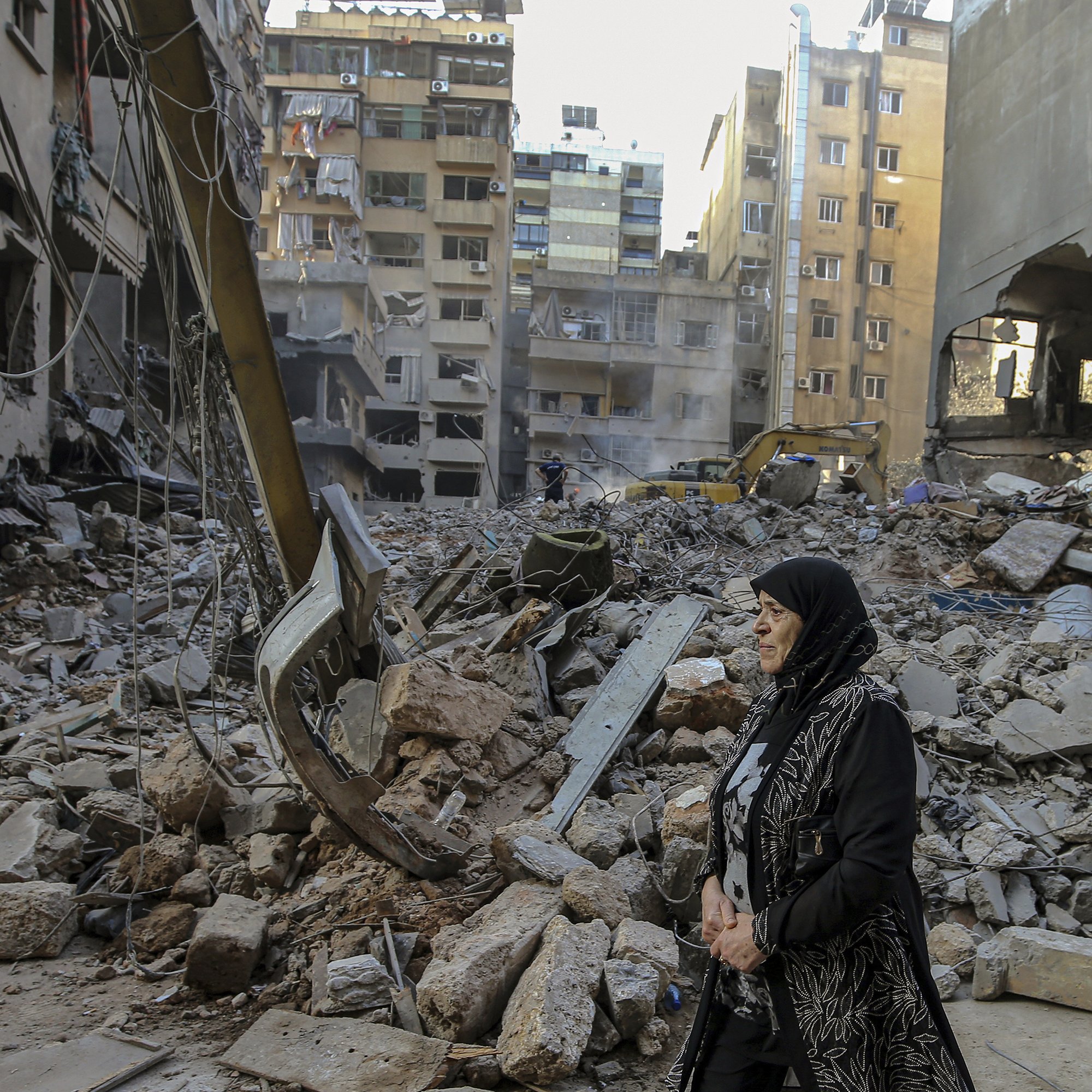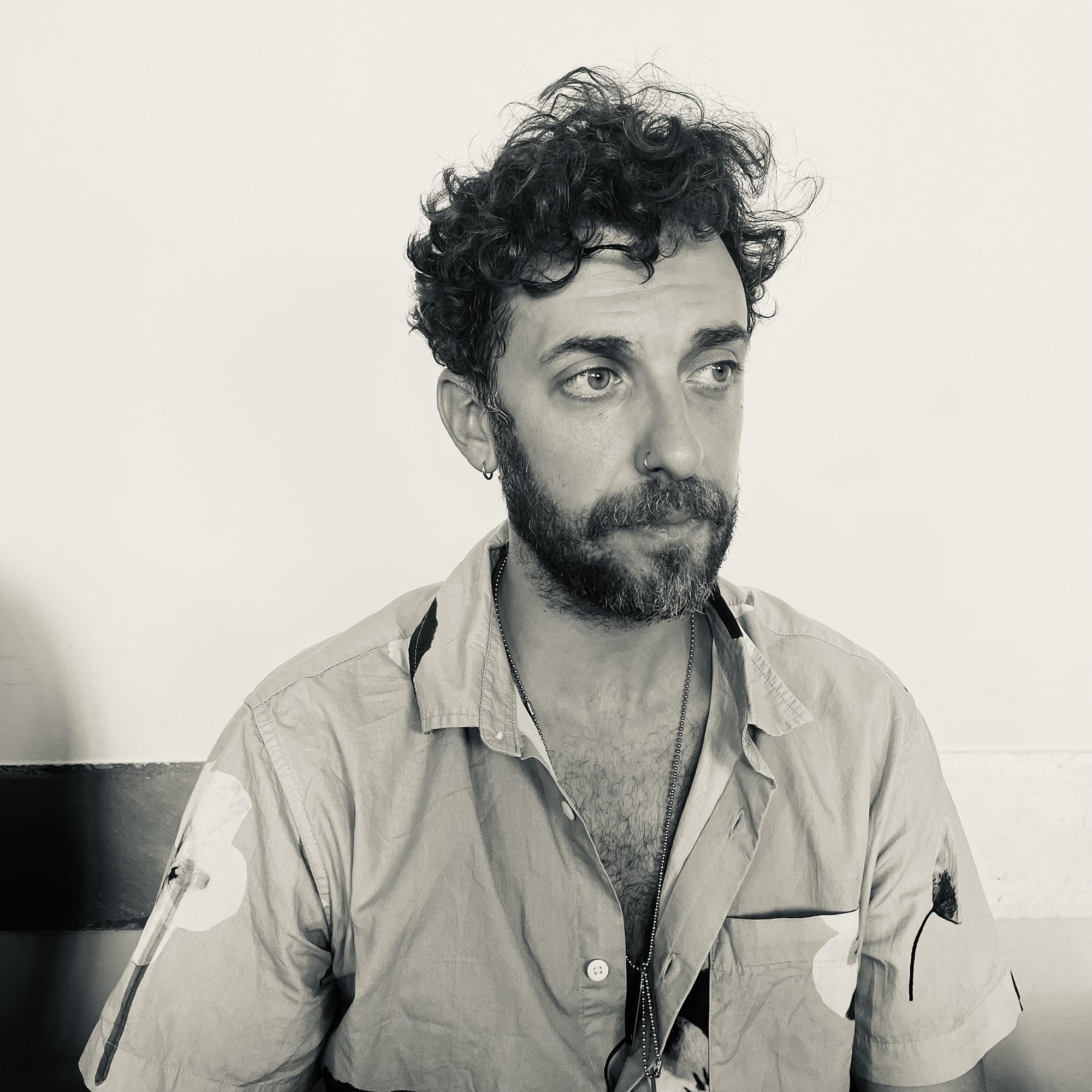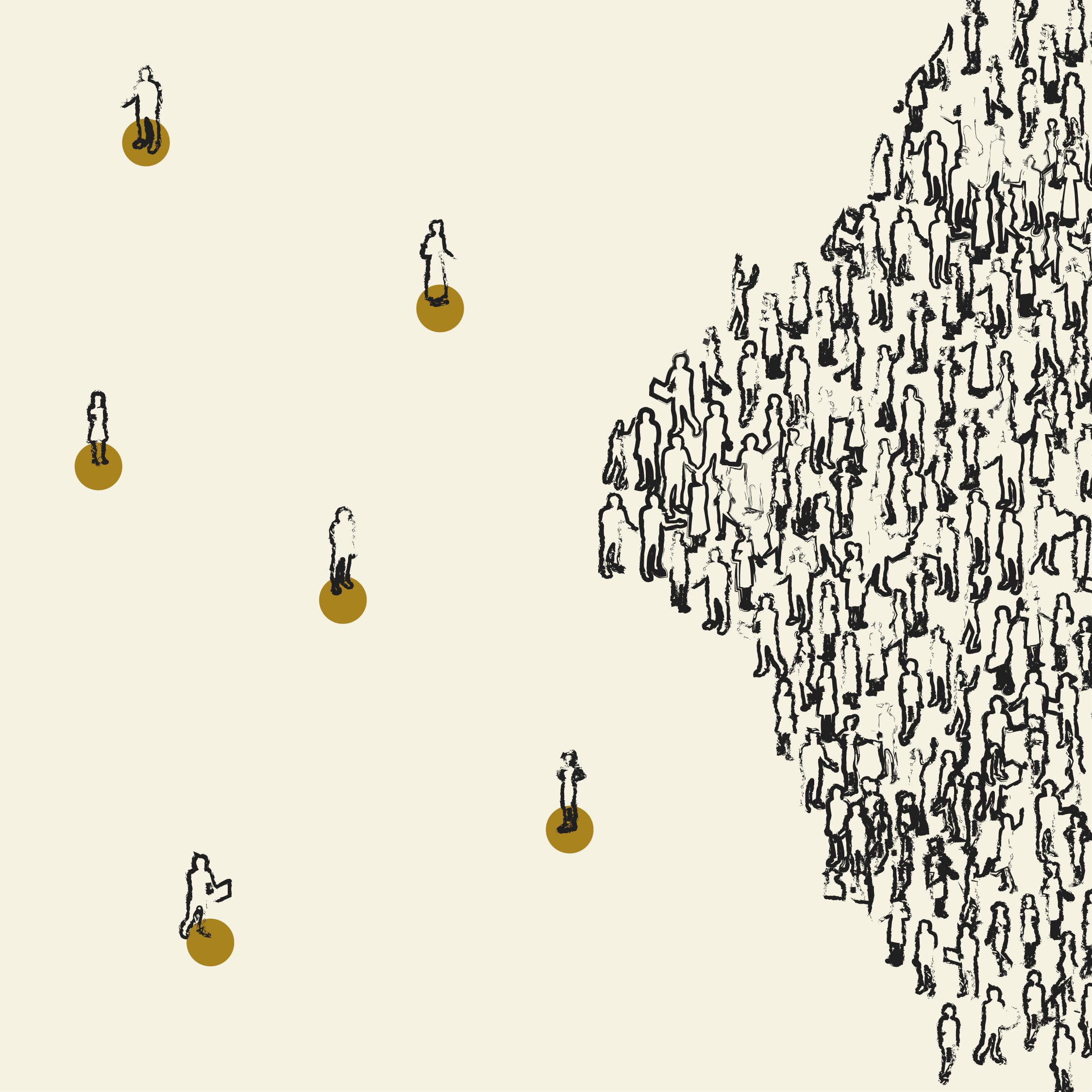The Captagon Capital
How Syria exploited an illicit drug trade to end its political exile.
SEPTEMBER 12, 2023
On May 16, 2023 the Lebanese Army received information that a strange odor was forming around a house in Baalbek, a city around a dozen kilometers from the Syria-Lebanon border. The house was owned by a member of the Jaafar clan, one of Lebanon’s most notorious drug smuggling groups, and the odor was an indicator that they might be cooking.
When the army unit entered Baalbek’s al-Sharawneh neighborhood, where shared walls facilitate movement between homes, the clan was ready for them. They fired at the army with rifles and a rocket propelled grenade. The army returned fire and the clan members fled, disappearing through the labyrinth of closely constructed buildings.
Inside the house, a tunnel behind what looked like a standing air-conditioning unit led to a small room filled with chemicals, big bags of hashish, and a smaller quantity of captagon — likely the source of the pungent smell that tipped off authorities.
Captagon is far from the newest drug in the Middle East, but it has become one of the most important substances in the region. Since 2011, production, distribution, and use of the amphetamine-type drug and its imitators have sky-rocketed. Countries including Saudi Arabia, United Arab Emirates, Qatar, and Kuwait have become so concerned with the burgeoning consumption of captagon among their populations that they’ve turned to the Arab League to find a solution.
Syria is the source of the crisis. Here, the highest echelons of President Bashar al-Assad’s regime control the multi-billion dollar trade, using the profits not only to make themselves rich, but also to fund the civil war. For over a decade, countries around the world have isolated Syria in the hopes that depriving the regime of resources will end the conflict. This strategy has proven to be largely ineffective. Now, as ties between the regime and the lucrative captagon trade have become more clear, some nations are reassessing their approach towards Syria. While the West has largely increased sanctions, Syria’s Arab neighbors have invited Assad back to the diplomatic table in the hopes that offering him a carrot will alleviate the captagon crisis.
✺
Captagon was first produced in the 1960s by a German company. In its original form, the drug is a fenethylline — a combination of amphetamine and theophylline — and was used to treat narcolepsy and attention-deficit disorder. After observing its addictive qualities and long-term side effects, including extreme depression, sleep deprivation, and heart and blood diseases, many countries around the world banned production in the 1980s.
The legal supply might have dried up, but demand for captagon did not go away. Factories and laboratories in eastern Europe continued to make tablets illegally and, as fenethylline was phased out by market alternatives, the composition of the drug began to change. As a result, there are many chemical formulas for captagon today.
“You can essentially make it however you want,” Caroline Rose, a director at the Washington, D.C. New Lines Institute for Strategy and Policy, where she leads a project on the captagon trade, told me. Captagon has essentially become a slang term for any kind of amphetamine, giving bursts of energy and focus, similar to speed or Adderall. Some versions of the drug, however, don’t even contain amphetamine anymore. In a 2022 report, Rose found that cheaper variants are sometimes cut with other substances, including quinine, caffeine, and antibiotics. Cheaper variants start at around $1, rising to $25 depending on the purity of the drug and the consumer market.
Partygoers and battlefield fighters take captagon for stimulation. Others take it for survival, like the food insecure who are forced to skip meals and sufferers of trauma looking for an escape from reality, including from war and poverty.
Because of its amorphous synthesis and ubiquity on the market, captagon is often mistaken for other stimulants. One Lebanese man in his mid-30s told me he took what he thought was cheap speed at a music festival a few years ago. “I guess it was captagon,” he said, describing the experience as containing moments of intense focus and distraction before a brutal come down.“For the next five days you fight with everybody around you,” he said.
In Syria, formerly the Middle East’s second largest pharmaceutical producer, the captagon trade started long before the civil war. President Bashar al-Assad’s rise to power, however, created a fertile environment for the drug. As the regime’s violent actions against civilians prompted sanctions, the country became economically isolated from much of the world. The deterioration of the state created spaces for corruption and a range of illicit activities to thrive, and, around 2013, reports began to emerge that the Assad regime had turned to captagon to supplement the money lost from legal trade.
“The state of lawlessness due to the war basically turned Syria into the captagon capital of the world,” according to Lina Khatib, the director of the SOAS Middle East Institute. “The money generated from this activity has become a lifeline for the Syrian regime.”
Now Syria supplies the entire Middle East. In Saudi Arabia, the world’s largest consumer, up to 40 percent of drug users reportedly take captagon. The drug is also prolific in the United Arab Emirates (UAE), Qatar, Kuwait, Bahrain, and more. There’s little evidence of widespread use in Europe, the Americas, and Asia-Pacific, but European ports are common stopovers for captagon shipments on their way to the Arabian Peninsula.
According to some estimates, Syria now makes more from captagon than all of its other legal exports combined. The U.S Department of Treasury describes the captagon trade as a “billion-dollar illicit enterprise” and the U.K. Foreign, Commonwealth and Development Office estimates the trade has made $57 billion off of the drug, or three times more than the combined trade of Mexican drug cartels.
The drug trade involves numerous middlemen and it's difficult to know for certain how many shipments go uncaught by authorities. Smugglers have become quite creative, packing captagon in products such as canned corn, tea leaves, pickled peppers, sofas, and the intestines of live sheep. In 2021, Saudi Arabia banned imports from Lebanon after discovering more than 5.3 million captagon pills hidden in pomegranates. Customs and anti-narcotic officials told Agence France-Presse they estimate only one in ten shipments of captagon gets busted.
Though it’s difficult to pin down the exact amount of money generated from the drug, it’s enough to fund pro-regime militias and line the pockets of people and industries connected to the regime. Revenue goes toward soldiers’ salaries, pays for weapons, and finances the agriculture and business sectors who provide services — including fuel, water, and electricity — that the state can no longer maintain. “The state of lawlessness due to the war basically turned Syria into the captagon capital of the world,” according to Lina Khatib, the director of the SOAS Middle East Institute. “The money generated from this activity has become a lifeline for the Syrian regime.”
The production and distribution of captagon is reportedly overseen by Syria’s Fourth Division, an elite military unit of the Syrian Arab Army, led by President Assad’s younger brother, Maher al-Assad. Der Spiegel, a German media outlet, described the division as “a mafia conglomerate with a military wing, guarding shipments and factories in addition to controlling ports.” Their reporting revealed that the unit receives $300,000 for every container shipped out of Latakia, Syria’s main port city, and pays soldiers up to $60,000 to turn a blind eye. What’s more, the Fourth Division uses their cars to transport captagon and other contraband through the country’s many government checkpoints.
“In Syria, any relatively significant economic operation cannot take place without [the Fourth Division’s] knowledge, approval, or control,” Jihad Yazigi, founder and editor of The Syria Report, told me. The Syrian regime denies any involvement, but there have been multiple cases of smoking guns linking them to the trade. Most recently, Hassan Muhammad Daqqou, a Lebanese-Syrian businessman nicknamed the “King of Captagon” by Lebanese media, was arrested in 2021 in connection to a shipment of 100 million captagon pills destined for Saudi Arabia. The BBC found that Daqqou was in direct contact with a phone number allegedly belonging to Major General Ghassan Bilal — the head of the Fourth Division’s security bureau and Maher al-Assad’s number two.
The expansion of the captagon trade in Syria has long been met with sanctions by the U.S. and E.U. In June 2020, the U.S. Caesar Syrian Civilian Protection Act extended sanctions against regime allies that restrict any business with U.S. citizens or companies. The U.K., meanwhile, has applied sanctions by freezing the economic resources of at least 11 individuals from Lebanon and Syria in connection to the trade, including business magnates, militia leaders, and politicians. But these sanctions haven’t stopped the illicit trade, which has also been linked to the Syrian regime’s Lebanese ally Hezbollah and Iranian-backed militias in Iraq. Because freezing out Syria has not stopped the proliferation of the drug, the country’s Arab neighbors are turning to a new strategy: ending Syria’s political exile.
After twelve years of being iced out by its neighbors, Syria was readmitted into the Arab League, an alliance of Arab countries created for economic and military coordination, in early May. The move is an abrupt about-face, as many of these nations had at one time backed rebels fighting President Assad. Government and policy specialists I spoke to say that the reasons behind this neighborly turn are twofold: First, most think that engaging with the regime is the only way to reign in the drug trade ravaging its way through the region. Second, as hope of Assad’s downfall has eroded, Arab states, led by Saudi Arabia, think bringing Syria back into the political fold could help with issues related to regional security and refugees.
Reports emerged in early May that Saudi Crown Prince Mohammed bin Salman had offered Syria $4 billion to curb the captagon trade, though Saudi officials later issued a denial. In regional meetings with Iraq, Egypt, and Jordan, Syrian government officials said they will work to identify who is producing and smuggling the drug, an announcement that is little more than a performative gesture. As of late July, Saudi authorities are still busting captagon smugglers and, in late August, several drones thought to have been carrying the drug have been shot down by armed forces in Jordan. The readmittance of Syria into the Arab League will only prolong the conflict by emboldening “the regime to make no concessions whatsoever,” Yazigi told me.
Still, nobody I spoke to said they foresee either of these tactics—no matter how lenient or severe — moving the needle.“[Captagon] is simply much too important for the Syrian regime as a cash-generating income,” Yazigi said.
Meanwhile, the U.S., U.K., and E.U. are sticking to and augmenting sanctions. They believe Assad should be held accountable for his crimes, even if that accounting seems unlikely to ever happen. The latest round of sanctions from the U.S. in March targeted a new list of people, including two of Assad’s cousins who reportedly oversee the production and smuggling of captagon. The U.S. State Department also submitted a report to Congress in June outlining how to disrupt and dismantle the regime’s trafficking network.
Still, nobody I spoke to said they foresee either of these tactics—no matter how lenient or severe — moving the needle.“[Captagon] is simply much too important for the Syrian regime as a cash-generating income,” Yazigi said. He added that the situation is complicated by familial dynamics. Maher’s power has grown so much from the captagon trade that it’s unclear whether his older brother can still control him. “Given the importance of this activity for Maher, I’m not sure Bashar has the capacity to tell him: ‘you stop doing this business because I want to open an embassy or I want to restore ties with any other country,’” Yazigi said. In addition to Maher, President Assad may risk upsetting other important stakeholders in his regime if he demands an end to the captagon trade without finding something else to give them. Dictatorial decrees don’t always receive the same veneration from their own relatives.
All of this leaves the West and the Arab League at an impasse that will likely bolster the regime and harm Syrians. Today, many state-provided services are concentrated in the hands of corrupt individuals close to Assad. Syrians inside the country continue to suffer the indignities of an eroding quality of life. In fact, demonstrations over poor economic conditions and against President Assad’s regime have entered their third week in southern Syria. Outside the country’s borders, millions of refugees refuse to return home so long as Assad’s reign continues. “Assad’s reintroduction to the Arab League supports the status quo in Syria,” Khatib told me, “which can only prolong the suffering of the Syrian people.”
✺
Back in al-Sharawneh, the outlaw who ran the captagon-production operation sent a voice note on WhatsApp addressing the army unit. In this region, the degrees of separation between drug smugglers and representatives of the state are often minimal or even overlapping. Many are related by blood, and families have fallen on both sides of the law. Knowing this, the smuggler sent a warning to many of his contacts to be forwarded on until it reached the leader of the unit, my security source told me. In the message, his voice boomed with anger as he threatened revenge against the officers who entered his house.
Even if President Assad were to exceed all expectations and limit Syria’s trade activity, captagon isn’t going away. The knowhow and capacity to produce the drug is ubiquitous and a billion dollar consumer market is cemented in the Middle East.
Over the last year, there have been at least six major captagon busts by Lebanese security forces alone. The incident in al-Sharawneh was routine. So routine that I couldn’t find any mention of the incident on the Lebanese Army’s website, where reports of the army’s accomplishments are typically posted, or in the local media. After all, captagon has been flowing back and forth across the Lebanese-Syrian border for over 25 years.
Even if President Assad were to exceed all expectations and limit Syria’s trade activity, captagon isn’t going away. The knowhow and capacity to produce the drug is ubiquitous and a billion dollar consumer market is cemented in the Middle East.
In June, Lebanese authorities seized an estimated 450,000 captagon pills in a warehouse raid near the Beirut Airport and Oman recorded its biggest bust ever: 6 million pills. That same month Iraqi authorities found 250,000 pills at a school near the Syrian border. Back in March, authorities seized 3 million pills at a different border crossing in Iraq.
Captagon used to pass through Iraq on the way to other nations. Lately, Iraq is a target destination, allegedly arriving under the guise of cleaning detergents. It may soon join Syria as an epicenter of the captagon trade.
PHOTO: “Over 127 plastic bags filled with an addictive drug called Captagon lie ready for destruction after being seized by U.S. and Coalition partners in Southern Syria” 2018. Published by the U.S. federal government and in the public domain, via Wikimedia



